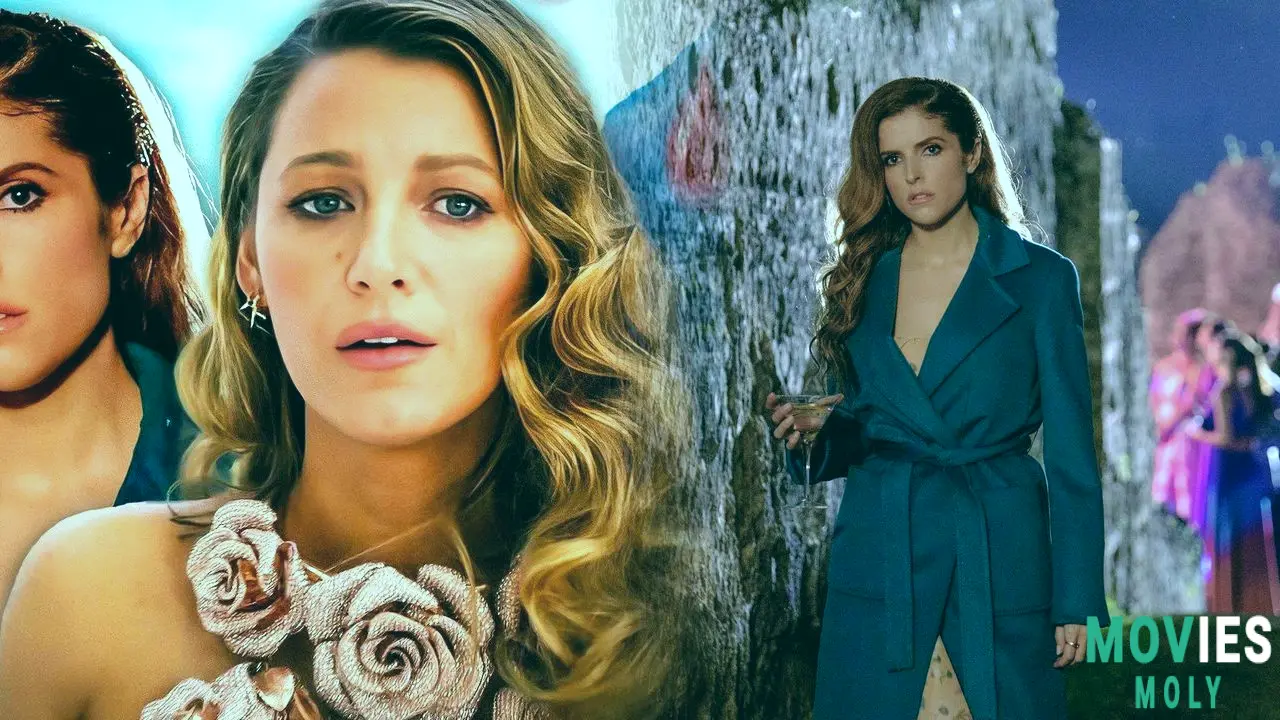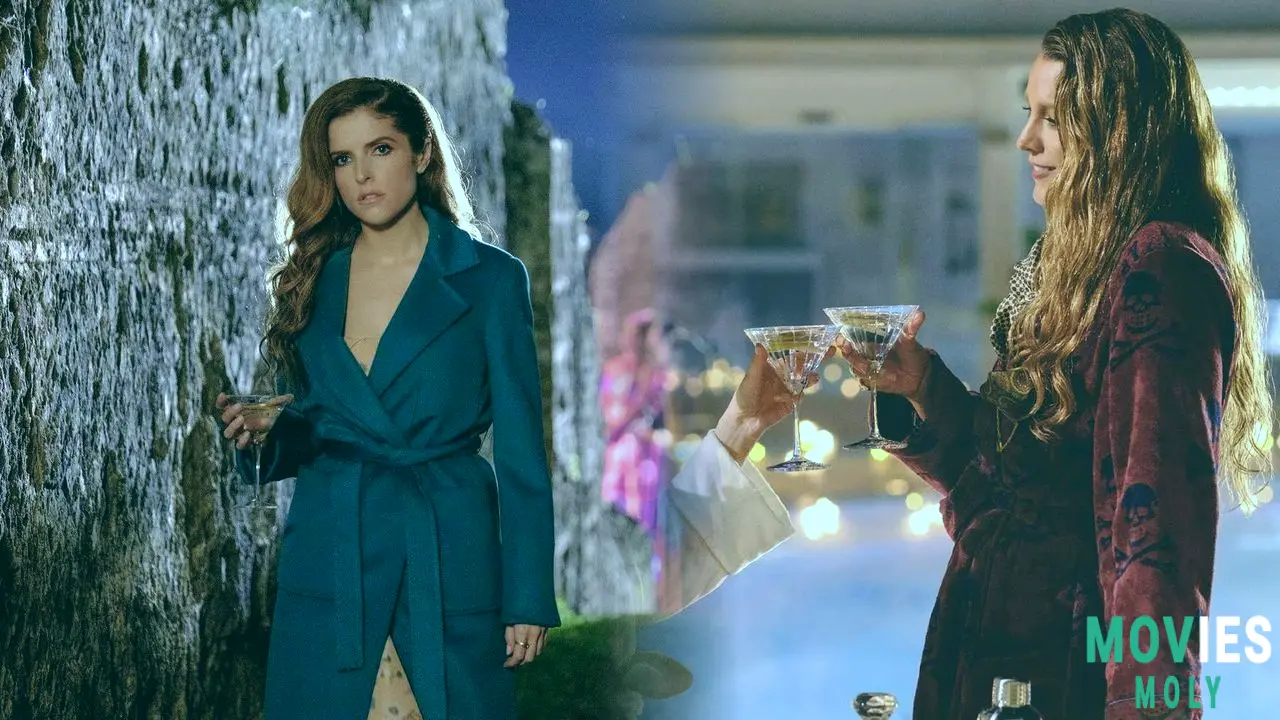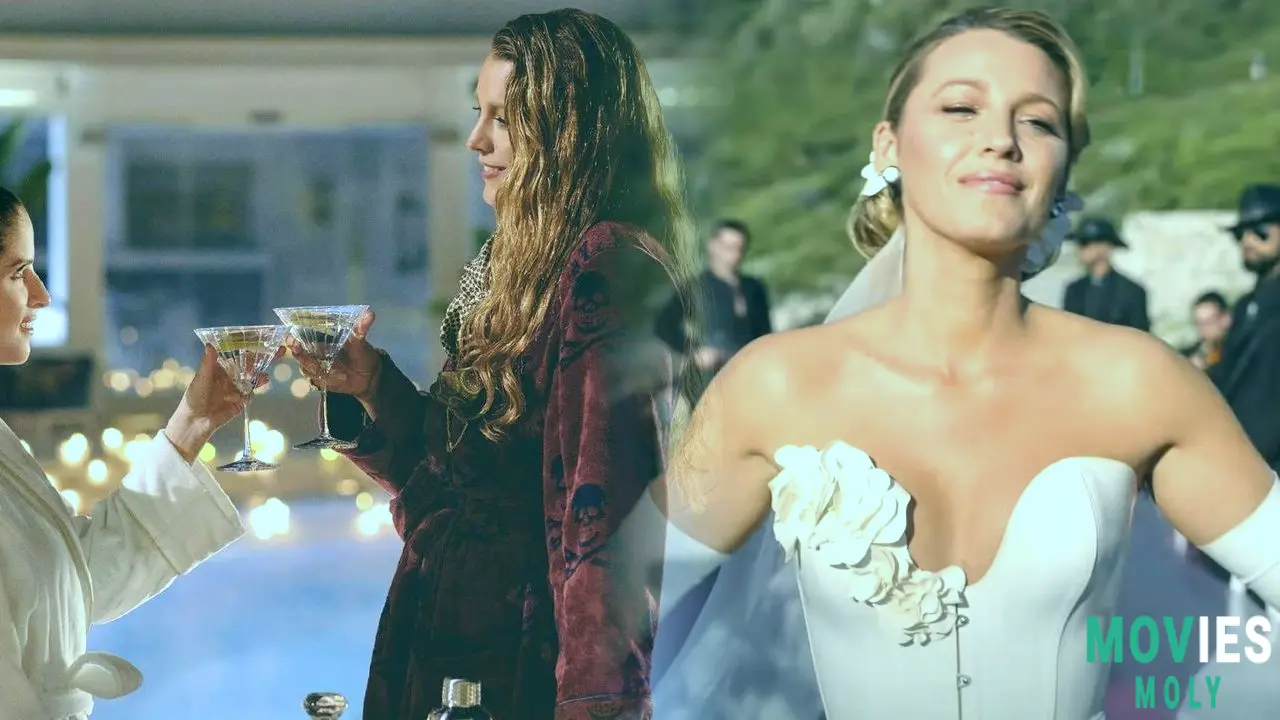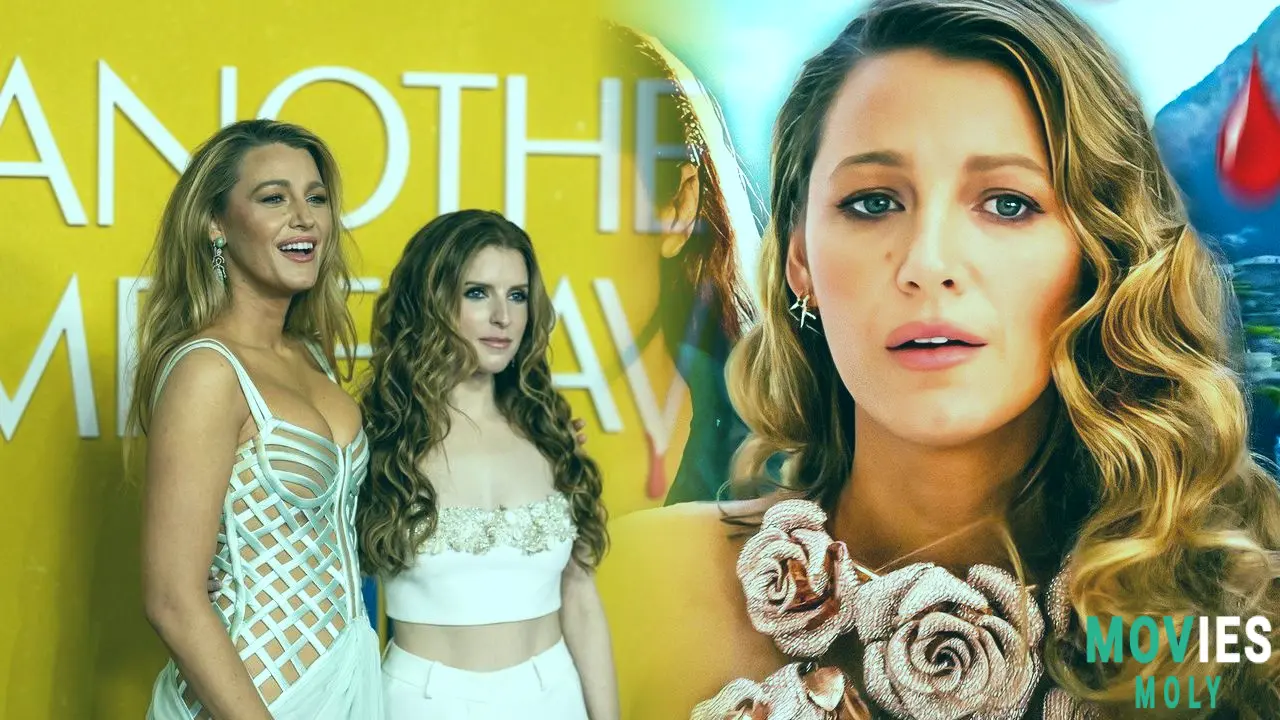Few sequels arrive with as much cryptic swagger and sartorial flair as Another Simple Favor, Paul Feig’s explosive follow-up to his 2018 cult hit A Simple Favor. Now streaming on Amazon Prime Video, the film roars back into the psychosexual, glitter-stained world of Emily Nelson (Blake Lively) and Stephanie Smothers (Anna Kendrick) — and somehow manages to out-psyche itself, while keeping the core assassinated-glam-chemistry intact.
Five years after Stephanie sent Emily to prison in a serum-soaked spiral of betrayals, we find Emily mysteriously freed early thanks to “high-powered attorneys.” Her reemergence is as dramatic as her wardrobe: a prison-chic entrance into a bookstore where Stephanie is reading from a book she wrote about their toxic tango. Emily needs a favor — or rather, another simple favor — and she wants Stephanie to be her maid of honor. In Capri. At a wedding that is anything but simple.
A twist-filled Italian fairy tale that wears its femme fatale energy on its sequined sleeveThe plot hurtles into the Italian sun like a Ferraris driven by femme fatales past their glamour prime but sharper than ever. Dante Versano (Michele Morrone), Emily’s soon-to-be fiancé, is not just a mobster — he’s a red cape in a matador’s circus. Emily’s attire escalates with her schemes, and Stephanie’s suburban sleuthing takes her straight into a vortex of masquerades, family secrets, and more murders than an Agatha Christie rave.
What makes Another Simple Favor stand out — even when it veers into campy chaos — is the unshakable dynamic between Lively and Kendrick. These two don’t just reprise their roles; they sharpen them into something more worn-in and weaponized. Emily, now a couture convict turned con queen, toys with Stephanie, who’s morphed from mommy blogger into true-crime influencer with a taste for survival. Their dialogue snaps like broken glass in a diamond shop.
The triplet twist that takes the trilogy-level plotting into full comic book lore territory

Just when you think the film is content to recycle Gone Girl-style twists dressed in sequined deception, it adds a layer of familial mythology straight out of a gothic graphic novel. Emily’s real name is Hope — and she isn’t just a twin. She’s one of three triplets. Charity, the supposedly stillborn third sister, is very much alive, eerily obsessed, and willing to play Emily’s identity like a Tarot card in a con game for the Italian mob’s fortune.
This isn’t just plot twist for the sake of it. It’s a full-on dive into identity, sisterhood, and the horrifying allure of becoming “one” with someone else. Charity’s psychological judo—stealing Emily’s persona, taking the blame for murders, and walking into prison as the real Emily—feels like a dark mirror reflection of comic book legacy swaps. Think of it as a gendered, noir-infused Identity Crisis with less Batman and more ballgowns stained with merlot.
The body count escalates, but so does the subtext about control, image, and survival

Sean Townsend (Henry Golding), Emily’s ex and unfortunate shower victim, is just the opening gambit in a series of deaths that escalate faster than Emily’s cocktail consumption. Each murder is as theatrical as the next, but beneath the surface, they serve as grim punctuation marks to a story about women's agency in a world that keeps trying to cage them — or worse, make them compete for space in its patriarchy.
Stephanie, framed and confined, doesn’t just fight back; she levels up. Her journey from house arrest to bestselling author who omits “certain details” about her murderous vacation in Italy is a satisfying evolution. She’s no longer playing Emily’s game — she’s writing the rules. And with two kids under her wing now, including Emily’s son Nicky, she’s carving out a new role for herself: survivor, storyteller, and unwilling partner in crime to Emily’s next chapter.
The ending teases a third installment — and a potential trilogy with darker, sharper edges

In a final scene that feels lifted from the best kind of genre-palace-guardian gambits, Emily — now truly in hiding and living as a new persona — is approached by Portia, her mother-in-law and new shadow ally. “We’re family now,” Portia says. “And I have a simple favor for you.” It’s a closing door opening into a possible third film, and one that Feig hasn’t ruled out. (He’s spoken about liking “open doors” for sequels, and honestly, who wouldn’t want one more round of this glittery psychodrama?)
While Another Simple Favor may stumble into tonal tangents in its second half, it never loses sight of what makes this franchise sing: the toxic, glamorous, and oddly symbiotic relationship between Emily and Stephanie. It’s a suburban noir with the soul of a comic book — full of identity swaps, moral grayness, and enough style to drown in.
Not every twist lands. Not every murder makes sense. But when Blake Lively and Anna Kendrick are trading barbed lines in designer chaos, you’re not just watching a sequel — you’re witnessing a genre evolution disguised as a martini-soaked girls’ day out. And honestly, that’s more than enough.




